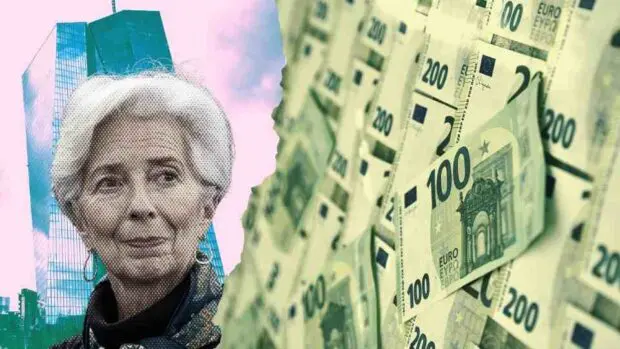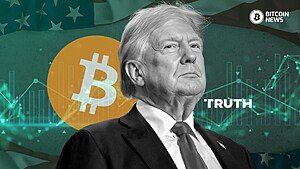Despite multi-decade high inflation and an energy crisis, European Central Bank President Christine Lagarde dismisses ideas of recession.
Lagarde states that the European Central Bank won’t hurry into withdrawing monetary assistance as policymakers take action to limit inflation that is running at over four times their targeted 2%.
“I don’t think that we’re in a situation of surging demand at the moment,” she told Bloomberg Television from the World Economic Forum in Davos Tuesday. “It’s definitely an inflation that is fuelled by the supply side of the economy. In that situation, we have to move in the right direction, obviously, but we don’t have to rush and we don’t have to panic.”
Ms. Lagarde spoke a day after blogging about the central bank’s future measures. She predicts the ECB will leave negative monetary policy by the end of the third quarter and raise rates in July.
According to sources familiar with the topic, the timeline calls for two quarter-point rate rises in the third quarter, excluding a half-point increase.
Some policymakers, notably the Bank of France’s Francois Villeroy de Galhau, say the ECB may conclude the year with positive interest rates.
Traders expect four 25-basis-point ECB rises by 2022.
“When you’re out of negative, you can be at zero, you can be slightly above zero,” Ms Lagarde said. “This is something we will determine on the basis of our projections, on the basis of our forward guidance.”
Lagarde wouldn’t say if the central bank may move 50 basis points.
The Ukraine conflict boosts costs and erodes corporate and consumer confidence.
“For the moment, we are not seeing a recession in the euro region,” the ECB president said.
Lagarde mentions “rock-bottom” unemployment, big household savings, and a great summer for tourism as drivers that will counteract conflict and record inflation.
The euro soared on Ms. Lagarde’s words, regaining previous losses against the US dollar to record a one-month high at $1.0736.
Christine Lagarde found guilty in negligence trial in 2016 while head of IMF
Christine Lagarde was found guilty of negligence in sanctioning a hefty payout of government funds to notorious French businessman Bernard Tapie, but she escaped jail time.
A French court condemned the now ECB President and former president of the International Monetary Fund, who faced a €15,000 (£12,600) fine and up to a year in prison. However, it was agreed that she should not be penalized and that her conviction would not result in a criminal record. The IMF backed her completely.
Jean-Claude Marin argued the court that Lagarde’s acts were political, not illegal, and that she should be acquitted.
Lagarde, has always maintained she did nothing illegal and operated “in the public good,” was not present during the hearing.
Lagarde still doesn’t get it, probably NGMI
Lagarde release an interesting and contradictory statement recently.
“My very humble assessment is that it is worth nothing,” Lagarde said of Bitcoin and “crypto” in an interview with Dutch talk show College Tour. “It is based on nothing, and there is no underlying asset to act as an anchor of safety.”
She may be right when it comes to “crypto” but Bitcoin is a different breed.
Bitcoin brings and end to Monetary Tyrants like Lagarde
Bitcoin is not about conducting low- or no-fee worldwide transactions.
The goal of Bitcoin is to prevent monetary tyranny. That is its reason for being.
Monetary tyranny may manifest itself in a variety of heinous ways. It can be purposeful inflation, punitive capital regulations, pre-planned defaults within the banking cartel, or, worst of all, outright national seizure.
Unfortunately, these risks exist in practically every jurisdiction throughout the world today. The US does not have a monopoly on monetary dictatorship.
When the state is removed from the money and loses the authority to define legal tender, its power is limited to directing legislative and enforcement activities that do not immorally influence a currency.
Taxes for wars and domestic escapades will have to be raised the old-fashioned manner, not by simply debasing the currency.
In the same way that the Second Amendment in the United States, at its heart, remains the final right of a free people to resist their ultimate political repression, a powerful tool is required to avoid a matching repression: State monetary dominance.
As the mechanism for a decentralized, nonpolitical unit of account, the Bitcoin allows this protection in a manner that is unique.
The timing of Bitcoin’s introduction and growth is also not coincidental. If one follows the attitudes and trends, it is clear that society was nearing a breaking point.
Bitcoin is a response to three distinct and ongoing developments: centralized monetary authority, declining financial privacy, and entrenched legacy financial infrastructure.
A centralized alternative money supplier would likely not last long in any nation. The rise of Bitcoin was already predetermined.
Corrupt, Aggressive, and Authoritarian leaders should be terrified of Bitcoin
Bitcoin has enabled citizens in nations such as Nigeria, Iran, El Salvador, and others to express themselves freely and experience economic progress.
Within a few weeks of El Salvador adopting Bitcoin as a currency, 2.1 million residents – 70% of whom previously lacked bank accounts – got a Bitcoin wallet and joined the global economy.
Bitcoin use in Africa rose 1,200 percent in 2017 alone as more and more individuals began using it to attain independence from forces beyond their control, such as government restriction of financial access and currency depreciation in unstable countries.
Earlier this year, when Nigeria attempted to restrict remittances from overseas, which are vital to the existence of many families, in reaction to public protests against corruption, $6 billion in remittance cash transferred to Bitcoin and ‘“crypto”.
Bitcoin is providing hope and freedom from tyranny
Bitcoin is creating a brighter future for millions of individuals throughout the world, and am confident that despite the FUD, and prohibition in places like China, millions of continue to find ways to maintain their monetary security.
John McAfee once stated, ”You can’t stop things like Bitcoin. It will be every where and the world will have to readjust. World governments will have to readjust.”
Despite China’s repression, and FUD from laggards like Lagarde, we can see that J-Mac was correct.
The world will have to adapt to a new period in which the balance of power has returned to the people, and no government, corporation, or institution can take away the freedom that is rightfully yours.










